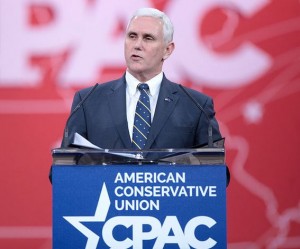
The fallout over Indiana Gov. Pence ignoring the warnings of corporations and civil rights advocates continued today after the governor signed into law a sweeping bill allowing individuals to use religion as an excuse to discriminate against LGBT people and other minorities.
Max Levchin, cofounder of PayPal, CEO of Affirm, and Chairman of Yelp, tweeted, “What is happening in Indiana is pretty unbelievable. However it’s dressed up, it’s a signal that discrimination is welcome in this state.” Also, in an email to Affirm employees, Levchin said, “I believe the bill signed into law today in Indiana — legalizing business discrimination against gays — is a fundamental step backwards. The signal it sends (no matter how it is framed by its proponents) is clear: the state of Indiana supports and encourages bigotry and discrimination.”
“Today is a sad day in history for Indiana,” said HRC National Field Director Marty Rouse. “No matter how much businesses and fair-minded Hoosiers tried to warn the Indiana General Assembly and Governor Pence about the dangerous consequences of this bill, they chose rather to send a deeply disturbing message that Indiana supports discrimination.”
The CEO of one major local employer, Salesforce, Marc Benioff, announced today that the cloud computing company would dramatically decrease its investment in Indiana following the passage of the anti-LGBT religious discrimination bill. Benioff Tweeted today, “Today we are canceling all programs that require our customers/employees to travel to Indiana to face discrimination.”
Selisse Berry, founder/CEO of Out & Equal Workplace Advocates, commenting on Saleforce’s move said, “After marriage, attention on LGBT rights is turning to the workplace. Major corporations are leading the way where state and federal law falls short. Corporations understand it is bad for business if they operate in states that are labeled as discriminatory. Last year, companies like Delta in Georgia and Marriott in Arizona successfully led the opposition to similar religious-based exemptions that were anti-LGBT. Today, we applaud Salesforce for standing up for equality in Indiana.”
The Indiana Chamber of Commerce and other local employers including Alcoa, Cummins and Eli Lilly & Co. spoke out against the new law, warning that it is bad for business. The first bill of its kind passed into law this year, the Indiana law is a part of an onslaught of anti-LGBT bills being introduced around the country targeting LGBT people. Similar legislation has been opposed in other states by major companies including Wal-Mart and Apple out of concern that they undermine existing civil rights law and deeply harm the business climate of states in which they are passed.
Many of these bills could critically undermine the enforcement of state non-discrimination protections, and passing them will do serious harm to the business climate of these states—exposing the state to a wave of lawsuits, putting jobs at risk, and making major corporations think twice about investing in states that previously had pro-business reputations.
Americans overwhelmingly believe that businesses should not be able to deny services to someone because they’re gay or lesbian. According to a 2013 poll by Third Way and the Human Rights Campaign, 69 percent of Americans don’t think a business owner should be allowed to refuse to provide products or services to an individual because that person is gay or lesbian, compared to an incredibly small 15% that do. And when asked about small business owners in particular, a full 68% of Americans don’t think they should be able to refuse service to gays or lesbians, regardless of their religious beliefs. This supermajority included 55% of Republicans, 75% of Independents, 67% of people without college degrees, and 68% of Christians.











